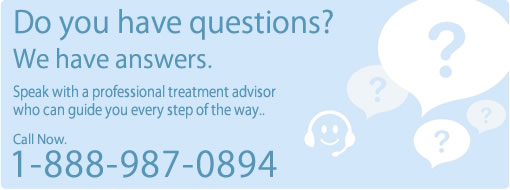Navigation

Help Me Find a Drug Rehab Center
Teen Drug Abuse
The most common causes of teen drug abuse:
If drugs are readily available (whether the person knows the drug or for around the home or school there are drug dealers, either because frequenting places where drugs), then the temptation to consume increases. Illicit nature of drug combination with the fact of having to increase the attractiveness of their hand. The human being has the tendency to imitate and be like others. Tend to be the same with others is very present in teens, teen wanting to look and behave in the same way as his friends. It reaches so the combination drug group of friends and even if initial drug was regarded as something bad, with time it will get attribute natural, normal and even pleasant.
Very good financial situation of the family can be a risk factor if the family meet the needs and desires exaggerate child. From the educational point of view, satisfy all needs and wishes of the child has a positive effect on it. This can lead to the formation of undesirable human traits: apathy, indifference, laziness, indulgence. Feeling like everything properly without much effort and feel that all he wants is beneficial may occur. Large amounts of money available to children without knowing exactly how it will be spent can be a temptation to get their drugs. This, especially if in their entourage drug already exists.
The existence of a family of an alcoholic parent, addicted to tobacco or drugs can lead to drug use, the behavior is learned by imitation. Family environment in which there is an alcoholic is characterized by frequent quarrels, even serious injury and charged atmosphere of sadness. To behavior as a way to respond to the problems of life are learned through imitation and imitation in particular parents, sometimes imitation is not conscious and though the child rejecting rational behavior of an alcoholic father, he gets to take it without recognizing it. Although there is a greater possibility of becoming addicted when one parent is an alcoholic, does not mean it always happens that way. Sometimes reactions can occur and complete rejection of alcohol and all substances that can be addictive, so the child never to consume alcohol or other drugs.
A miscommunication between parents and between them and the children may be a risk factor for drug use. Lack of communication in the family, associated with violence, is an environment for developing the feeling that it is understood and loved. Only good family communication can help your child to convey moods. Good communication between the child and parents gives the child the feeling that he is loved, understood and helped in difficult situations.
School difficulties, social problems arising as a result of physical, mental or a personality disorder can facilitated the drug consumption. Academic difficulties and social problems create feelings of self-doubt, sadness, loneliness and inferiority complex sometimes. This makes the person vulnerable against drugs, because it is receptive to anything that could dislodge it, even slightly, from painful personal reality. If visual disorders are part of the behavior, than the teen is characterized by impulsive personality structure through a capacitive low self-control. These can push the individual to undertake various actions, without thinking too much before.
The existence of a single parent because of divorce or death of a parent has to do with drugs. Because selfishness or teen often put these events on his account. He feels guilty for divorcing parents to their death. It often happens that the parent with whom the child will not be stuck closest to him or consider him guilty for family events. In such a family, drug use can occur very easily.
Physical symptoms related to drug abuse:
- apparent intoxication
- drooping eyelids
- red eyes
- dilated or contracted
- abnormally pale skin
- changes in sleep patterns
- insomnia
- sleep at unusual hours
- frequent diseases due to decreased resistance to infection
- cold
- weak cough
- Chest pain
- changes or sudden increase in appetite
- weight loss or unexplained loss of appetite
List of behavioral changes:
- unexplained mood swings
- depression
- anxiety or low mood that persists
- exaggerated reactions from some simple applications
- selfishness, lack of consideration for others
- darkness
- withdrawal from family life
- some loss of interest in activities you loved before
- lack of motivation, boredom, indifference
- Loss of remarkable power of concentration
- immediate memory loss
- change of the values, goals and beliefs
- new friends that is not interested in your portray
- telephone conversations kept secret
- unexplained absences from home
- theft of money
- disappearance of household objects that can be easily sold for cash purchase
- wearing sunglasses at inappropriate times
Category
- Drug and Alcohol Rehab Services
- Drug and Alcohol Rehabs
- Drug Detox / Alcohol Detoxification
- Methadone Detox
- Group Homes
- Hospital Inpatient Programs
- Outpatient Rehabs
- Partial Day Rehabs
- Residential Short-Term Rehabs (Less Than 30 Days)
- Residential Long-Term Rehabs (30 Days or More)
- Adolescent / Teen Rehab Centers
- Dual Diagnosis
- HIV / Aids Treatment Services
- LGBT Rehabs
- Senior Rehabs
- Rehabs for Expectant Mothers
- Women - Treatment Services
- Men - Substance Abuse Treatment
- Residential Beds Parents w/ Children
- Dui/Dwi Clients
- Criminal Justice Client Rehabs
- Self Pay
- Medicaid Accepted
- Medicare Accepted
- State Insurance
- Private Health Insurance
- Rehabs that Accept Tricare
- Access To Recovery Voucher
- Sliding Fee Scale Accepted
- Rehabs with Payment Assistance
- Hearing Impaired Rehab Services
- Spanish Treatment Services
- Other Languages